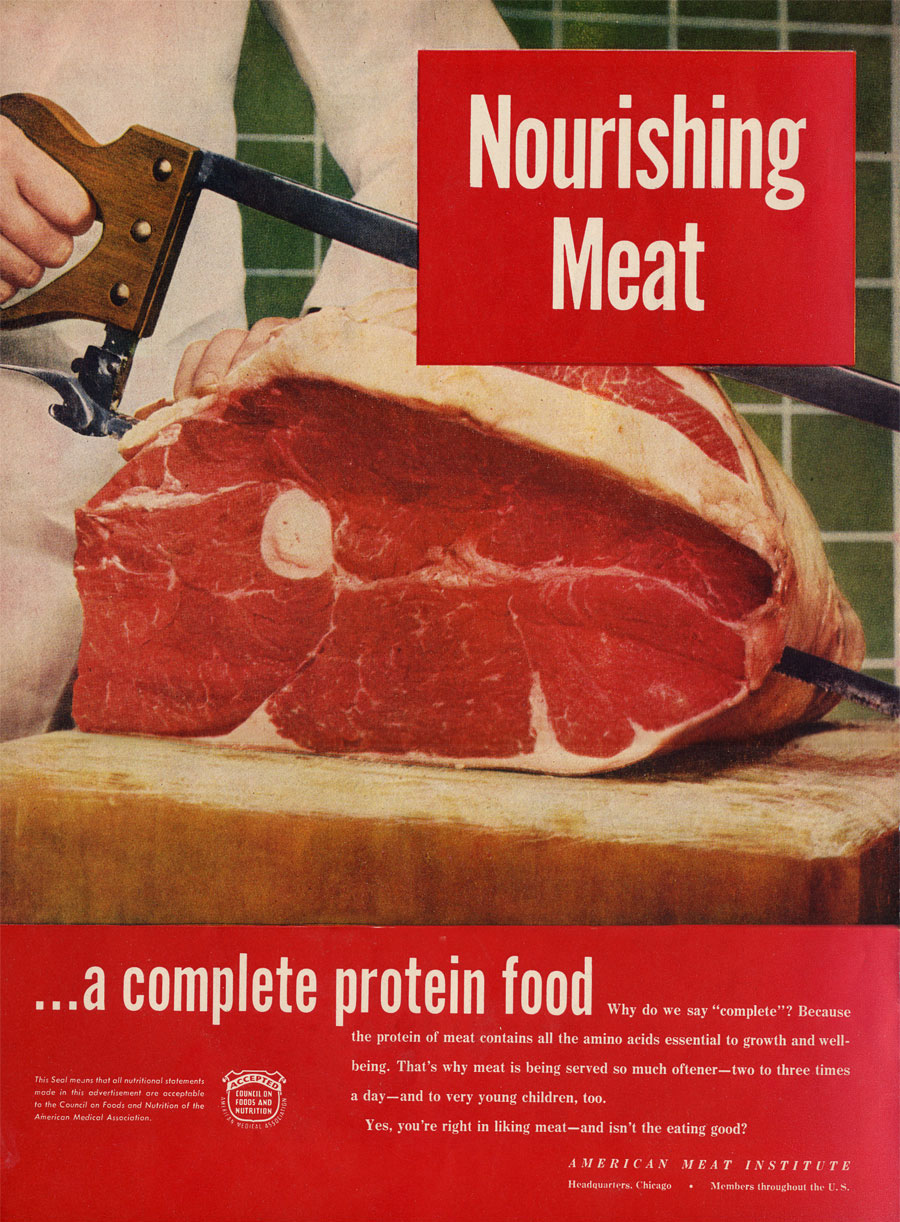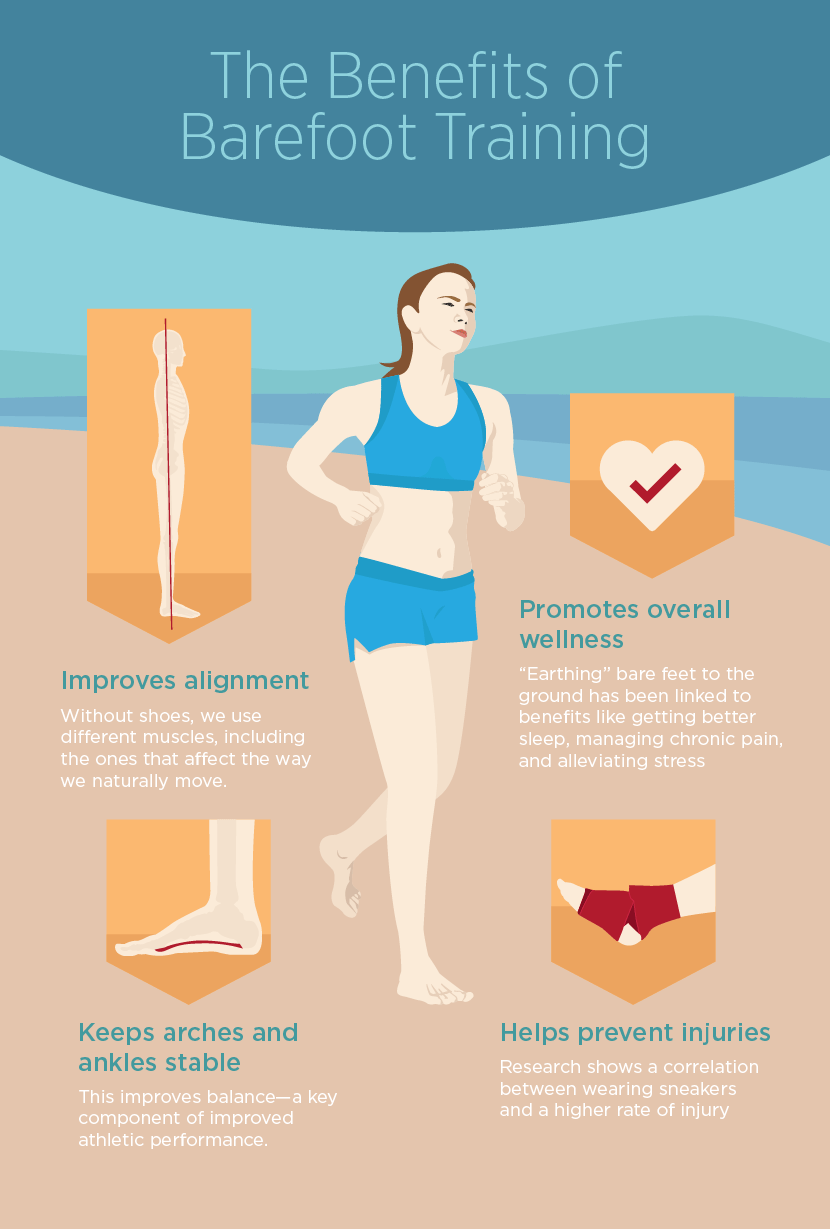 |
| Ads like this have falsely influenced and harmed generations. In 2015, red meat was classified as a class 2A carcinogen by the WHO. |
Firstly, we can be strong without consuming animal protein. Many athletes have proven this and continue to do so. In 1991, Olympic sprinter, Carl Lewis, had his "best year as an athlete ever" while consuming a completely plant-based diet. Ultramarathon runner Scott Jurek has achieved numerous records also without any animal protein for the last 17 years (watch the video at the end of this article to learn more). One of the strongest men in the world, Patrik Baboumian, hasn't consumed meat in over 10 years, and continues to compete in strong man competitions, while shattering the protein myth. Heavyweight boxer David Haye came out of retirement, more muscular than ever, and recently knocked out his undefeated opponent, all after adopting a vegan diet more than two years ago (see image below).
 Secondly, not consuming meat does not lead to a protein deficiency. A landmark study published in 2013 compared the protein intake of meat eaters, vegetarians, and vegans, and found that all three groups more than exceeded their daily protein requirments. Moreover, the need for protein in our diet is vastly exaggerated as we don't need that much protein to grow and stay healthy. For example, human breast milk only contains about 6% protein, which allows us to more than triple our birth weight in the first year of our lives.
Secondly, not consuming meat does not lead to a protein deficiency. A landmark study published in 2013 compared the protein intake of meat eaters, vegetarians, and vegans, and found that all three groups more than exceeded their daily protein requirments. Moreover, the need for protein in our diet is vastly exaggerated as we don't need that much protein to grow and stay healthy. For example, human breast milk only contains about 6% protein, which allows us to more than triple our birth weight in the first year of our lives.Thirdly, protein does not have to be "complete" with every meal. Another myth driving the perceived need for animal protein is the notion that we need to consume a "complete protein." All the building blocks to make protein do not have to come from one source at every meal in order for our body's innate intelligence to put everything together. A well-balanced diet gives you all that you need.
 And finally, animal protein is actually unhealthy. While the meat industry has literally spent billions over the last 60+ years to encourage us to eat meat for health, the science has shown that eating meat may be good for their business, but definitely not for your health. Studies have linked the consumption of animal protein with the development of a wide range of chronic diseases, including cancer, heart disease, diabetes, rheumatoid arthritis, kidney disease, multiple sclerosis, and even Alzheimer's.
And finally, animal protein is actually unhealthy. While the meat industry has literally spent billions over the last 60+ years to encourage us to eat meat for health, the science has shown that eating meat may be good for their business, but definitely not for your health. Studies have linked the consumption of animal protein with the development of a wide range of chronic diseases, including cancer, heart disease, diabetes, rheumatoid arthritis, kidney disease, multiple sclerosis, and even Alzheimer's.So where do I get my protein from? As vegan natural bodybuilder Robert Cheeke says, "... from the same place your protein gets it's protein from." The plant kingdom has everything we need. Simply eat as much whole, unrefined, unprocessed veggies as possible, along with fruit, whole grains, legumes, lentils, seeds, and some nuts; and let your body do what is knows best.
-by Dr. Shailen J. Nana
For more information:
This is why you crave beef: Inside secrets of Big Meat’s billion-dollar ad and lobbying campaigns
Meat Industry Advertising
Low Protein Intake Is Associated with a Major Reduction in IGF-1, Cancer, and Overall Mortality in the 65 and Younger but Not Older Population
Professional Vegan Arm Wrestler Proves Plant-Based Diet Can Equal Strength
Raw Vegetarian. Professional Arm Wrestler. Oh, and Also Olympic Bobsledder
Adverse Effects Associated with Protein Intake above the Recommended Dietary Allowance for Adults
BUILD MUSCLE WITH WHOLE FOOD, PLANT-BASED DIET
Do Vegetarians Get Enough Protein?
The Protein Combining Myth
Why is Meat a Risk Factor for Diabetes?
The composition of human milk.
How to Optimize the “Whole” in a Whole Food, Plant-Based Diet


